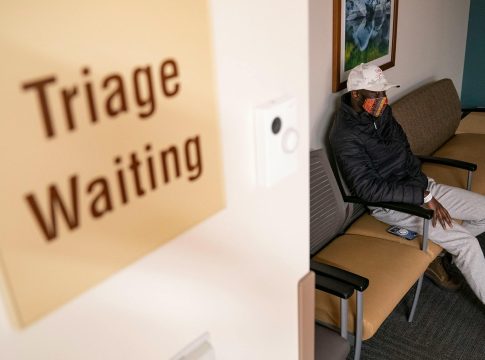Understanding the Mental Health System: Breaking the Cycle of Crisis
When talking about mental health, it’s crucial to address the systemic challenges that often lead individuals and families to crisis situations. As Marnie Werner from the Center for Rural Policy and Development emphasizes, many people find themselves in emergency rooms not because they want to, but because they feel they have no other option. This bottleneck often occurs because patients didn’t receive timely help or were unsure of where to turn for support earlier.
A Difficult Pathway
Visiting the emergency room (ER) for mental health reasons can be a daunting experience. Those who arrive are often in a high state of distress, seeking support for themselves or a loved one. Rebekkah Anderson, a former foster mom, sheds light on this journey. She shares her experiences of spending countless hours in the ER, where the first evaluation feels more like a waiting game than a lifeline.
- Understanding Triage: Triage is the process of prioritizing patient care based on the severity of their condition. However, for mental health crises, the urgency can often feel neglected compared to more traditional medical emergencies. It’s not uncommon for families dealing with issues like suicidal thoughts or extreme agitation to wait for several hours, with little clarity on their next steps.
This prolonged wait can be traumatic, not only for the individuals in crisis but also for their families. It places additional stress on everyone involved, reinforcing feelings of helplessness and despair.
The Cycle of Inadequate Support
A significant factor contributing to this cycle of crisis is the absence of adequate mental health resources. Often, in-patient treatment isn’t immediately available during that initial ER visit. Patients frequently return home, left to navigate their challenges until another crisis occurs. This can lead to a repetitive cycle of seeking emergency care without obtaining the supportive tools necessary to foster long-term recovery.
Foster children, in particular, can face unique challenges related to mental health. Many struggle with co-occurring issues like fetal alcohol syndrome, which can exacerbate underlying mental illnesses. Their needs require not just immediate attention but also sustained support systems.
Breaking the Silence Surrounding Mental Health
To alleviate these bottlenecks in the system, it’s vital to confront the stigma surrounding mental health. Here are some strategies to consider for fostering open conversations:
-
Educate Your Community: Share information about mental health resources with friends and family. Knowledge is a powerful tool in breaking down barriers.
-
Encourage Dialogue: Create a safe space for discussions about mental health within your social circles. Let people know that it’s okay to share their struggles.
-
Support Networks: Encourage the formation of support groups that can help bridge the gap between crisis and recovery. These networks can provide a sense of belonging and normalization.
- Reach Out: Never hesitate to seek help from professionals if you or someone you know is struggling. Early intervention can be life-changing.
Conclusion: Embracing Compassion and Change
By addressing the challenges within the mental health system and fostering open discussions about mental health, we can help create a more supportive environment for those in need. Compassion and understanding can pave the way for change. Let’s support each other and work toward a society where mental health is prioritized, and individuals no longer feel like they have to wait until a crisis to seek care. Together, we can break the stigma and create pathways to healing.

Covers wellness, nutrition, mental health, and daily life tips.
Bio: Talia brings a background in health journalism and holistic living to help readers live better, one tip at a time.

